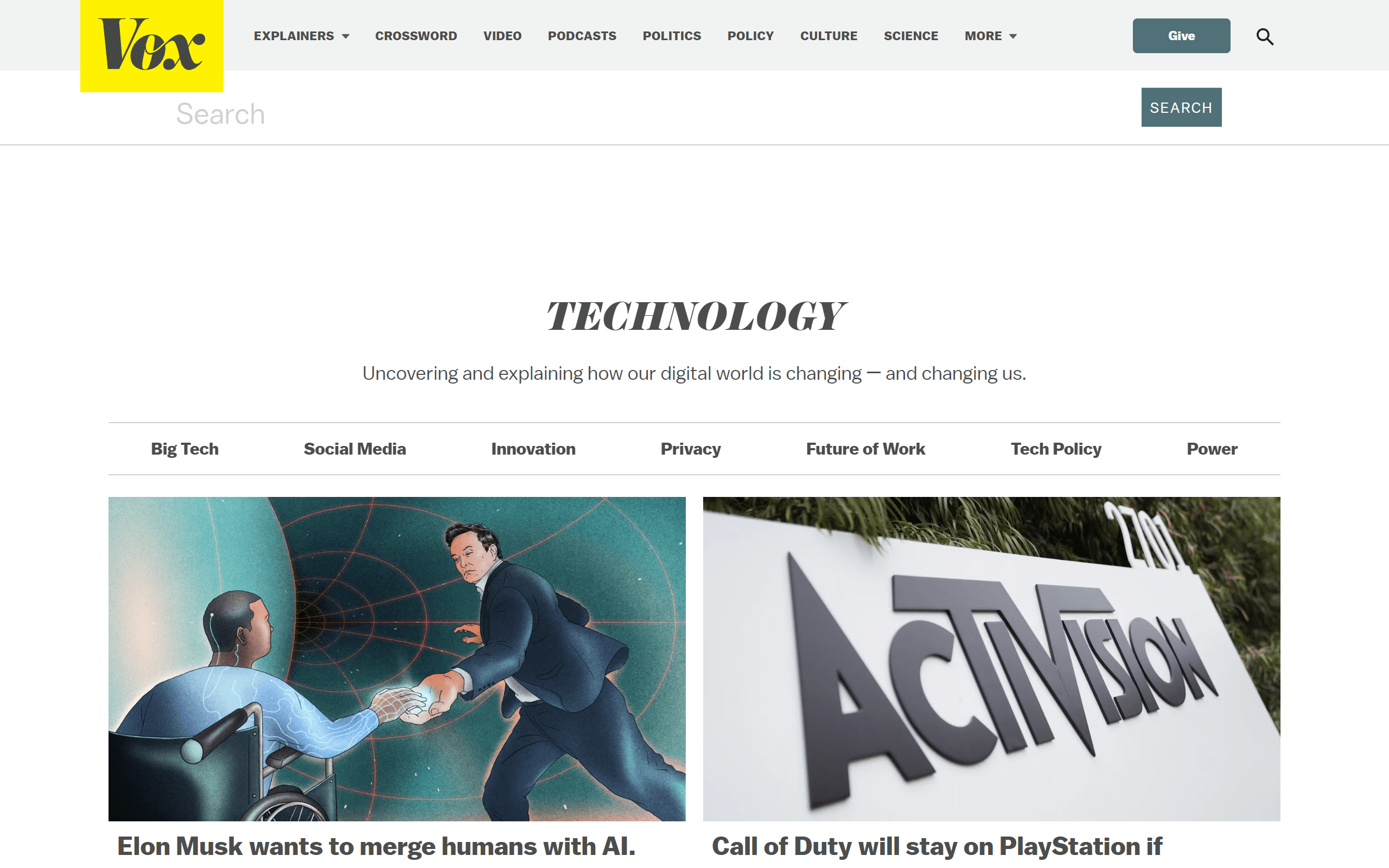The Best tech blog: Your Crucial Overview to Browsing the Digital World
Wiki Article
How Blockchain Innovation Is Revolutionizing Data Security
Blockchain modern technology is essentially changing the landscape of data security by presenting a decentralized structure that guarantees improved transparency and resilience. Unlike standard systems, which depend on centralized information databases, blockchain disperses data throughout a network, minimizing susceptabilities and solitary points of failing. The usage of sophisticated cryptographic methods guarantees that information stays tamper-proof, promoting trust amongst stakeholders and customers.The Basics of Blockchain
Blockchain innovation, a revolutionary concept in digital information management, essentially changes exactly how details is saved and secured. At its core, a blockchain is a dispersed ledger that tapes purchases throughout a network of computer systems, guaranteeing openness and immutability. The modern technology operates a chain of blocks, each containing a list of transactions. When a block is filled, it is time-stamped and linked to the previous block, producing a chronological chain.Secret to comprehending blockchain is the hashing process, which secures purchase data right into an unique alphanumeric code. This cryptographic function guarantees that any kind of change in the purchase data leads to a totally different hash, thereby safeguarding against tampering. The consensus mechanism, one more critical component, validates and verifies new transactions with a network of nodes, thereby eliminating the demand for a central authority.
Furthermore, blockchain's append-only structure makes certain that data, once added, can not be deleted or changed. This characteristic guarantees a verifiable and irreversible record of transactions, cultivating count on among individuals. Therefore, blockchain supplies a durable structure for data honesty, offering industries a reputable technique for monitoring and handling digital info in a safe, transparent manner.
Decentralization and Security
Decentralization, a core concept of blockchain modern technology, substantially enhances data protection by dispersing control throughout a network as opposed to depending on a singular, centralized entity. This circulation mitigates the threat of single factors of failing, which prevail in conventional central systems. By distributing data across numerous nodes, blockchain guarantees that even if one node is endangered, the whole network remains secure. This redundancy not only strengthens the honesty of the data yet also raises its strength to cyberattacks and system failures.
Furthermore, decentralization encourages individuals with higher control over their information. Each participant in the network has accessibility to the entire blockchain, permitting them to verify and audit transactions separately. This transparency fosters count on amongst individuals, as they do not have to rely upon a central authority to ensure data integrity. Overall, decentralization is crucial in improving data safety in blockchain networks.

Cryptographic Techniques
At the heart of blockchain modern technology, cryptographic techniques play an essential duty in protecting information, ensuring both confidentiality and honesty. These techniques are foundational to the blockchain's capability to firmly record deals in a decentralized fashion. Cryptography in blockchain uses a combination of symmetrical and crooked formulas to encrypt data, making it easily accessible just to accredited events - Best tech blog. Public and personal vital pairs are central to this procedure, permitting secure authentication and identity verification without exposing sensitive info.Hash functions are another crucial element, changing input information into a fixed-size string of personalities, successfully producing a distinct electronic fingerprint for each block. This ensures that any attempt to change the data will lead to a completely various hash, therefore maintaining the immutability of the blockchain. Electronic signatures verify the credibility and stability of transactions, giving a layer of non-repudiation.
The decentralized nature of blockchain, combined with durable cryptographic methods, eliminates the demand for intermediaries, reducing possible susceptabilities. As blockchain modern technology Going Here progresses, developments in cryptography such as zero-knowledge evidence and homomorphic security remain to enhance protection procedures, better fortifying information security in this innovative electronic ledger system.
Usage Situations Across Industries

In the health care market, blockchain ensures the safe and secure storage and sharing of patient records, advertising interoperability while securing delicate information from unapproved gain access to. This modern technology empowers people with control over their case history and facilitates seamless sychronisation among doctor.
Supply chain administration benefits significantly from blockchain's immutable journal, which makes certain traceability and credibility of products from beginning to customer. By enhancing openness, blockchain aids minimize problems such as counterfeiting and unethical sourcing.
In addition, blockchain's decentralized nature is improving the power industry by enabling peer-to-peer power trading, where customers can acquire and sell excess eco-friendly energy directly. This promotes an extra effective and sustainable power ecological community.
In the realm of copyright, blockchain gives a tamper-proof system for designers to register and secure their jobs, making certain rightful attribution and reasonable payment. These varied use instances highlight blockchain's function as a crucial force in redefining information safety and security across industries.
Future of Data Protection
As we aim to the future of data security, blockchain innovation is poised to play a pivotal function in guarding electronic details. With its decentralized and immutable attributes, blockchain offers a robust structure for securing delicate information versus unauthorized accessibility and cyber threats. This innovation Going Here makes certain that once data is taped, it is virtually difficult to change without discovery, thus offering a considerable advantage over standard information storage space methods.The assimilation of blockchain with other advanced innovations, such as expert system and the Internet of Things (IoT), is anticipated to improve information security methods better. By leveraging clever agreements, organizations can apply and automate security protocols, lowering human mistake and raising efficiency. Furthermore, blockchain's ability to provide transparent and traceable transactions will bolster depend on and accountability in data administration techniques.
As regulative landscapes develop, blockchain's compliance-friendly nature will certainly come to be significantly relevant. It can help companies fulfill strict information security guidelines, such as the General Data Defense Regulation (GDPR) and the California Consumer Personal Privacy Act (CCPA), by giving proven documents of information processing activities. Eventually, blockchain's unique attributes placement it as a transformative device in the recurring quest to secure the electronic world versus ever-evolving cyber risks.
Conclusion
Blockchain technology represents a standard shift in information protection by leveraging decentralization and cryptographic strategies to enhance openness, depend on, and data honesty. Its ability to remove single factors of failure and utilize agreement mechanisms considerably decreases the danger of fraudulence and cyberattacks. This innovative structure not only encourages customers with higher control over their data however likewise straightens with regulatory conformity. As cyber risks advance, blockchain becomes an essential tool for durable data protection throughout various markets.Blockchain read the article modern technology is fundamentally changing the landscape of information safety and security by introducing a decentralized framework that promises enhanced openness and durability. Unlike conventional systems, which rely on central data databases, blockchain distributes data throughout a network, lessening vulnerabilities and single factors of failing.Decentralization, a core principle of blockchain innovation, dramatically improves information protection by dispersing control throughout a network rather than depending on a singular, centralized entity.At the heart of blockchain modern technology, cryptographic strategies play a crucial function in protecting information, guaranteeing both discretion and stability.Blockchain technology represents a paradigm change in data safety by leveraging decentralization and cryptographic techniques to boost transparency, count on, and information honesty.
Report this wiki page